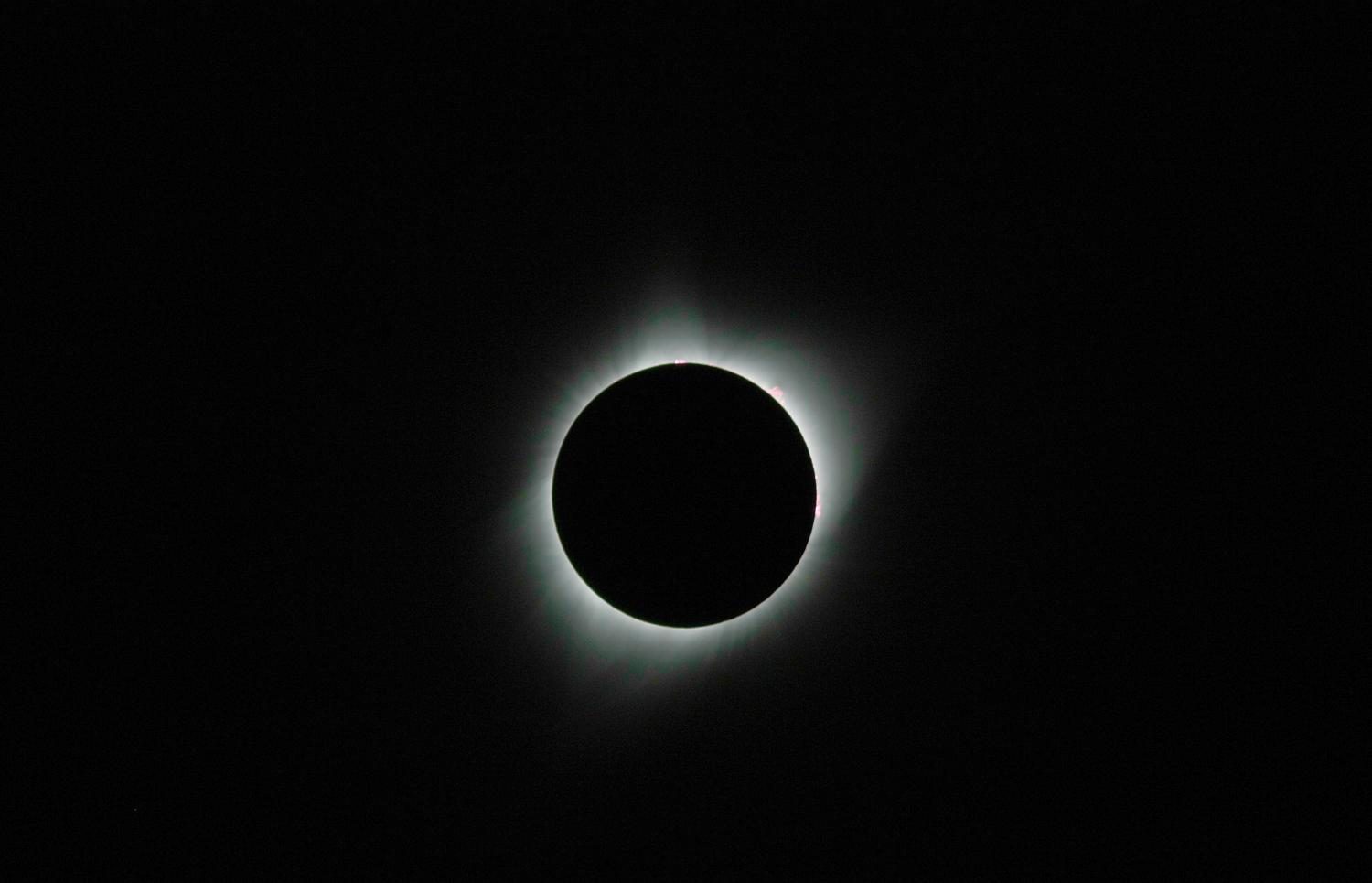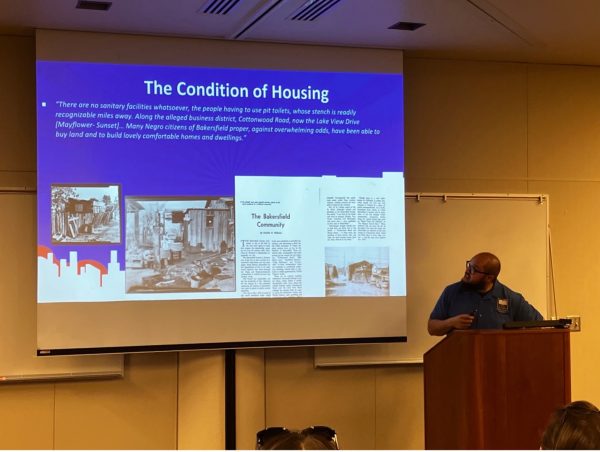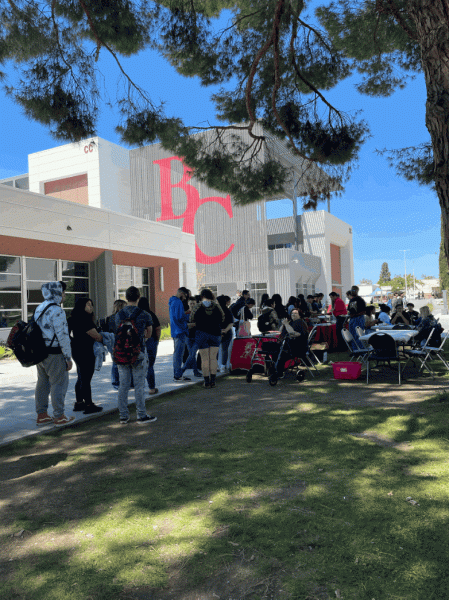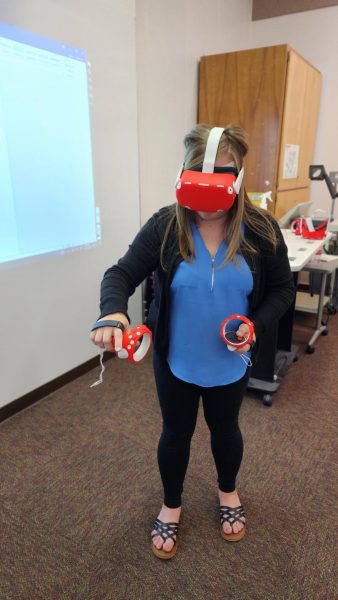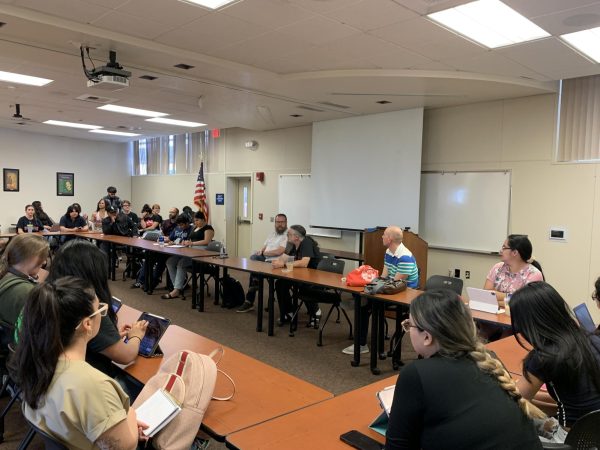Gazing at total solar eclipse
A picture showing an image of the eclipse that occured on Aug. 21 by Bakersfield College astronomy professor, Nick Strobel.
September 7, 2017
On Aug. 21, a total solar eclipse could be viewed from the U.S. mainland for the first time since 1979.
The eclipse, which could only be seen as a partial solar eclipse from California, reached totality at 10:16 a.m. Sixty-seven percent of the sun was covered when viewing the eclipse from Bakersfield.
The eclipse happened to coincide with the first Monday of the fall semester. Students returning from summer break could be seen gazing toward the sky as they headed to morning classes. For some students, the event wasn’t a big to-do.
“I heard about it,” said Bakersfield College student, Jason Carter. “Maybe when I was younger it would have mattered, or maybe when I’m older it will. Right now, it was just the sun being weird for a minute, and I had a class to go to.”
For others, like BC astronomy professor Nick Strobel, the event was a bit more momentous. Strobel travelled to Wyoming to view the eclipse, returning with photos and videos that can be viewed on the Bakersfield College Planetarium’s website.
Some may have noticed that shadows seemed to appear slightly different during the eclipse. According to Strobel, this is due to less of the sun’s surface being visible, which causes the light to come from a smaller point source, thus making shadows appear sharper.
Another interesting phenomenon that can happen during an eclipse is the appearance of shadows bands. Shadow bands appear as wavy lines that seem to move and undulate. They can be seen immediately prior to or after totality. Shadow bands weren’t visible in Bakersfield, but Strobel said that a family member who viewed the eclipse in Oregon reported seeing them.
There will not be another total solar eclipse that is visible in North America until April 8, 2024.


